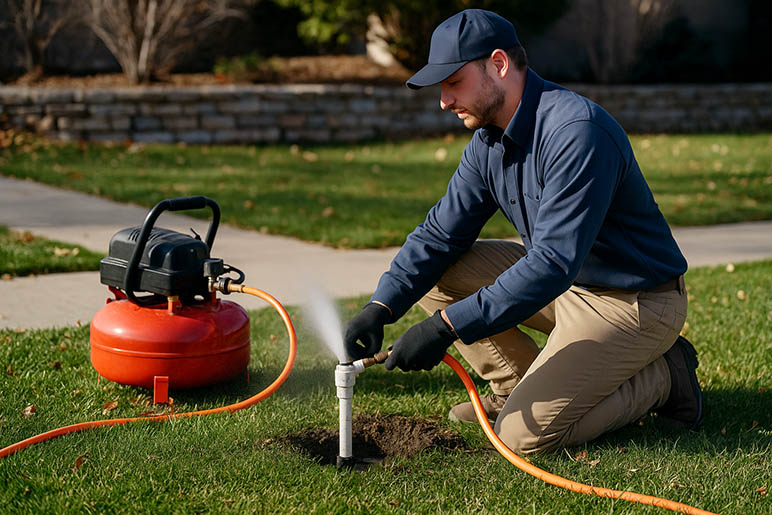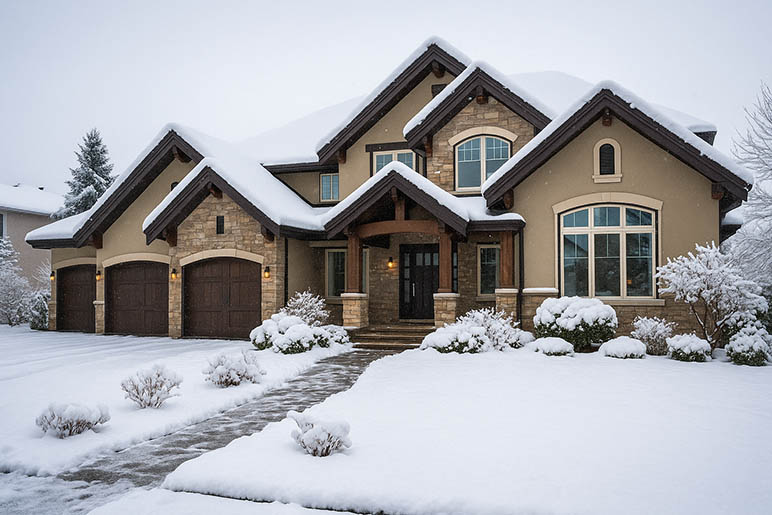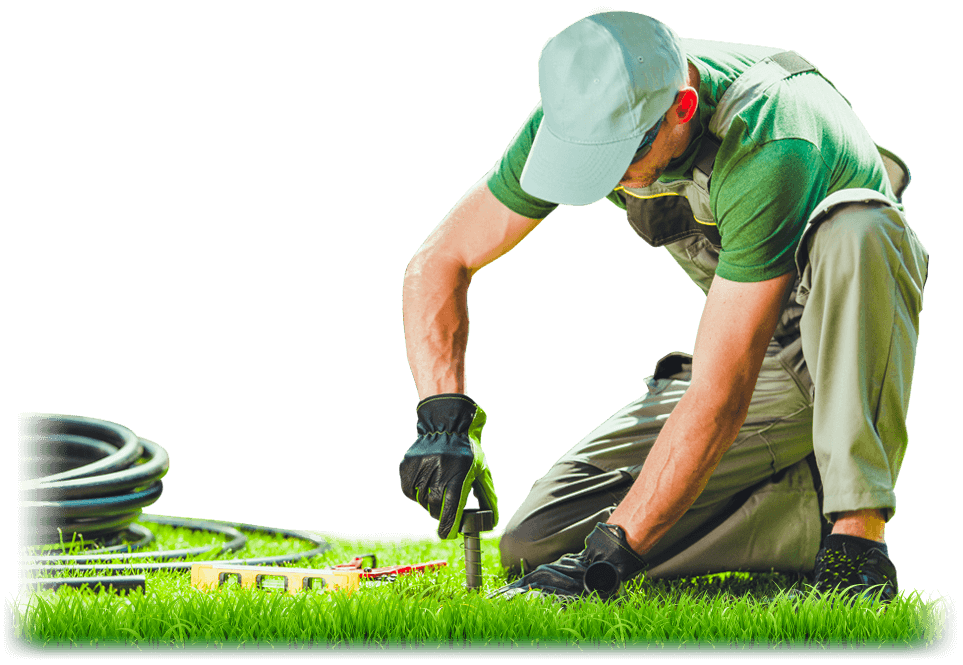
CS Sprinklers
Hire A Professional Sprinkler Company
When you hire a professional sprinkler company, you’re getting a hassle-free lawn ready for summer.
Winter can destroy your sprinkler system if you’re not ready. Follow this step-by-step guide to protect your yard and pipes from Denver’s freezing temps.
If you’ve lived in Denver for more than a year, you already know how quickly winter shows up. One day it’s sunny and mild, the next it’s dumping snow and dipping below freezing. And while your sprinkler system might be out of sight, it shouldn’t be out of mind when fall rolls around. Failing to winterize your sprinklers can lead to cracked pipes, broken valves, and an expensive mess to deal with come spring. At CS Sprinklers, we’ve seen the damage firsthand—and we’re here to walk you through exactly what to do before the freeze hits.
The first step to winterizing your sprinkler system is turning off the water supply. Most homes in Denver have a dedicated shut-off valve located in an utility room, a basement, or a crawl space. This valve controls the flow of water to your sprinkler lines, and once winter’s on the horizon, you’ll want to shut it down completely. Doing this early—usually by mid-October—is smart, especially with Denver’s unpredictable fall weather. We’ve had surprise freezes as early as the first week of October, and all it takes is one cold night to burst a pipe that still has water in it.
After shutting off the water, head outside and locate your backflow preventer. This is the device that keeps sprinkler water from flowing back into your home’s drinking supply. In most cases, it’s mounted above ground near the side of the house or along the foundation. You’ll want to drain any water sitting inside this component by opening the two bleeder valves with a flathead screwdriver. Don’t forget to leave the ball valves at a 45-degree angle when you’re done—this relieves pressure and helps prevent freezing. If you don’t feel comfortable doing this yourself, that’s where a quick call to us comes in handy.
Next comes the most important part: blowing out your sprinkler lines. This is where a lot of homeowners get into trouble. Simply shutting off the water doesn’t mean the system is empty. Water can remain trapped in the underground pipes, and when that water freezes, it expands. That’s how you end up with cracks, splits, and major leaks once spring rolls around. The safest way to clear your lines is with an air compressor. You’ll connect the compressor to your system and run air through each zone until only a light mist is coming out of the heads.
If you’re doing this step on your own, be very careful not to use too much pressure. Too little air won’t clear the lines, but too much can damage valves, heads, or pipes. We recommend using a compressor that can deliver about 50 to 80 PSI—nothing more. Start with one zone at a time, and don’t leave the air running for more than two minutes per zone. If you’re not sure how to connect the compressor or which settings to use, give us a ring. We’ve got the tools and experience to do it safely without damaging your system.
Once the air blowout is complete, walk around the yard and check for any missed sprinkler heads or risers still holding water. Tap them gently or manually lift them to make sure they’re not stuck or clogged. Water sitting at the top of the head can freeze and crack the casing, which means you’ll be replacing it in spring. If anything looks off, now’s the time to replace it. It’s a lot easier to do repairs before the ground freezes than it is in March when everything’s still solid and muddy from snowmelt.
While you’re at it, inspect your valve boxes. These green or black boxes are often overlooked, but they protect the valves that control each zone of your system. Make sure they’re not flooded or holding water. If they are, use a shop vac or sponge to remove the excess moisture. It’s also a good time to clear out dirt, leaves, and critters that may have taken up residence inside. A clean valve box keeps your components dry and your wiring safe until spring. Bonus points if you take a photo of the layout for easy reference next year.
Don’t forget about your controller. If you’re using a traditional timer-based controller, switch it to the “off” or “rain” mode. That stops the system from running during the winter but keeps your programming saved for spring. If you use a smart controller, follow the manufacturer’s steps for putting it into standby or seasonal shutdown mode. You might also want to replace the backup battery while you’re at it. And if your controller is in a cold garage or shed, double-check that it’s protected from freezing temperatures, just like the rest of your setup.
Finally, take a moment to label or make a checklist of what you’ve done. That might sound overly cautious, but trust us—it saves time when spring rolls around. Knowing which valves were shut off, which heads were replaced, and which zones had issues gives you a huge head start when it’s time to turn everything back on. At CS Sprinklers, we keep records for our customers so they never have to wonder what happened the year before. If you’d rather not keep a notes next to your system, we’ll handle the tracking for you.
Winter prep doesn’t have to be stressful. Once you know the steps—and maybe have a little help along the way—it becomes part of your seasonal rhythm, just like raking leaves or tuning up the snowblower. And the payoff is huge. A properly winterized sprinkler system will be ready to go next year with minimal issues, no leaks, and a lot less stress. You won’t be digging up frozen ground, replacing cracked lines, or wondering why only half your yard is getting water.
Need help getting your system ready for winter? CS Sprinklers offers professional blowouts, valve inspections, and full winterization services across Denver. We’ll shut everything down the right way, so you don’t have to worry when the first cold snap rolls in. Give us a call before it freezes—we’ve got your yard covered.
Give us a call today at (303) 627-4190 or email us at sprinklers@cssprinklers.com.


“C S Sprinklers came out and repaired my sprinklers system fast and now they work GREAT!!”
“I needed help winterizing my sprinklers so I called CS Sprinklers. They were super helpful.”

Go Green
Our Mission
Our hands-on ownership approach allows us to offer the very best service in sprinkler repair and maintenance. The professionals at CS Sprinklers are dedicated to ensuring your satisfaction. Our customers are our business and the strongest compliment we can receive is your referral to friends, family, and neighbors. With eco-friendly solutions, we’ll help keep Denver’s lawns green, reduce water waste, and help protect the planet for future generations.
Professional Service
Call the professionals at CS Sprinklers for prompt and professional service. With a complete range of irrigation services, we'll offer you the best products and service with highly competitive prices.
Quality Sprinklers
When you want the best sprinkler service and products available, call CS Sprinklers. We have the latest smart-watering features in today's state-of-the-art sprinkler equipment.
Sprinkler Installation
Whether you need a new system installed or have an existing system, you can trust the sprinkler professionals at CS Sprinklers to give you the best price and recommendations.
Irrigation Repair
The professionals at CS Sprinklers have the knowledge and expertise to repair any sprinkler or irrigation problem, keeping your lawn green and your plants thriving. Give us a call. We're ready to help you.
Fall Winterization
Call the sprinkler professionals you can trust to ensure your sprinkler system is ready for winter. With routine seasonal services offered, winterization and blowouts protect your underground pipes.
Spring Tune-Ups
After a long winter, your sprinklers should be properly inspected in the spring to check for leaks and to make adjustments to sprinkler heads and watering schedules. Call CS Sprinklers today!
If you have any questions about irrigation products or services, give the sprinkler professionals at CS Sprinklers a call today!